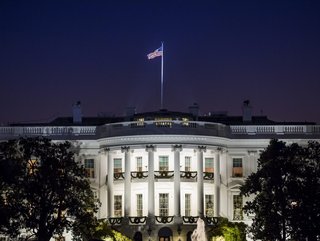Supply chain chiefs' relief over averted US federal strike

With a US federal government shutdown narrowly averted late on Saturday (September 30), a leading supply chain analyst says business chiefs were staring down the barrel of serious supply disruption until the announcement was made.
Federal shutdowns happen when the two chambers of Congress fail to agree on the 30% of federal spending they must approve before the beginning of each fiscal year, on 1 October.
Republicans hold a slim majority in the House, while Democrats hold the Senate by a single seat, which means any funding measure requires buy-in from both sides.
But efforts to pass spending bills in recent weeks have been scuppered by rebel right-wingers.
However, a bill ensuring funding until November 17 was signed into law by President Joe Biden minutes before the deadline of 00:01 ET (04:01 GMT) on Sunday. The bill included no extra funding for Ukraine, which had been a sticking point for Republicans.
A shutdown would have placed tens of thousands of federal employees on furlough without pay and seen the suspension of a raft of government services.
Federal shutdown 'bad news for cross-border trade'
Siddarth Priyesh, VP at CrimsonLogic – a global technology company that is digitising global trade – told Supply Chain Digital a shutdown would have been bad news for the cross-border movement of goods.
He says had the shutdown gone ahead then shippers and carriers would have been faced with serious delays with peak holiday season approaching.
“There would have been serious paperwork delays because government agencies would have been running at reduced staffing levels, and those staff that were working would be demotivated due to a lack of pay,” says Priyesh.
He added: “The shutdown would have resulted in slower clearance of goods at customs and ports, and this would have resulted in increased shipping costs, due to additional storage overheads and liabilities due to missed timelines and commitments to end customers.”
Priyesh also said that the shutdown would have resulted in delays to the clearance and delivery of raw materials.
“This would have caused further ripple-effects, where domestic manufacturing firms, depending on their inventory status, may have struggled to fulfil orders leading to reduced economic output overall."






